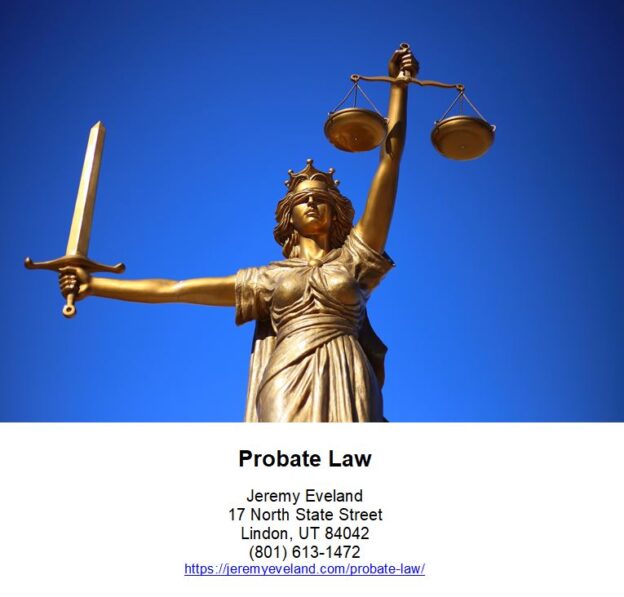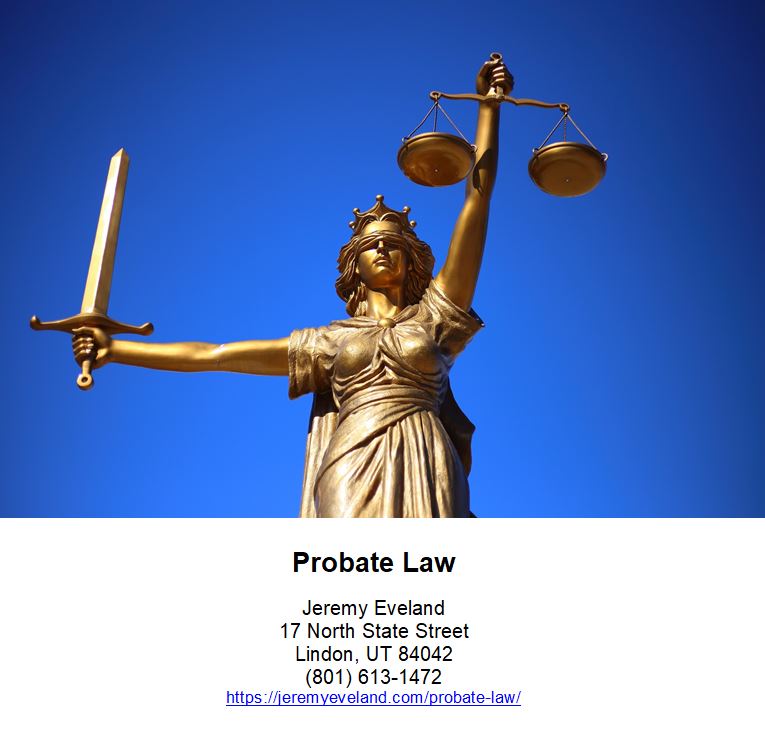Are you facing legal concerns with your Utah trust property? Look no further, because this article is here to provide you with valuable information and guidance. Whether you have questions about the management of your trust property, the transfer of trust assets, or any other related issues, our team of experienced attorneys is ready to assist you. We understand the importance of your trust property and are dedicated to providing you with the reassurance and support you need. So, don’t hesitate to reach out to us at the provided phone number. Take the next step in securing your trust property’s future and seek the legal assistance you deserve. Let us help you navigate the complexities of Utah trust property laws and ensure the protection of your assets.
What is a Utah Trust Property?
A Utah trust property refers to real estate or other assets that are held in a trust under Utah law. A trust is a legal entity that allows a person or organization, known as the trustee, to hold and manage assets for the benefit of another person or group of people, known as the beneficiaries. Trusts can be set up for various purposes, such as estate planning, asset protection, and tax planning.
Definition of a Trust Property
A trust property in Utah is any asset that has been legally transferred into a trust. This can include real estate, bank accounts, investments, vehicles, and personal belongings. When a property is transferred into a trust, it becomes separate from the individual’s personal assets and is held for the benefit of the beneficiaries designated in the trust agreement. The ownership and control of the property are then managed by the trustee in accordance with the terms of the trust.
Types of Trust Property in Utah
There are different types of trust property that can be established under Utah law. Some common types include:
-
Revocable Trust: This type of trust can be modified or revoked by the grantor (the person creating the trust) during their lifetime. It allows the grantor to maintain control over the assets and make changes to the trust as needed.
-
Irrevocable Trust: Unlike a revocable trust, an irrevocable trust cannot be modified or revoked without the consent of the beneficiaries. Once assets are transferred into an irrevocable trust, they are typically protected from creditors and estate taxes.
-
Testamentary Trust: This trust is created through a person’s will and goes into effect upon their death. It allows the grantor to designate how their assets will be distributed and managed for the benefit of their beneficiaries.
-
Special Needs Trust: This type of trust is designed to provide for the needs of individuals with disabilities, without jeopardizing their eligibility for government benefits.
Benefits of Utah Trust Property
Establishing a trust for your property in Utah can offer a range of benefits, including:
Estate Planning
One of the primary benefits of a trust property is its role in estate planning. By transferring assets into a trust, you can ensure that your property is distributed according to your wishes upon your death. You can specify the beneficiaries who will inherit the property, as well as any conditions or restrictions on how the property is to be managed or used.
Probate Avoidance
Another advantage of a Utah trust property is the potential to avoid probate. Probate is the legal process of administering a deceased person’s estate and can be time-consuming and costly. By holding property in a trust, it can pass to the beneficiaries outside of probate, allowing for a faster and smoother transfer of assets.
Asset Protection
With the right trust structure, a Utah trust property can provide asset protection. For example, an irrevocable trust can shield assets from potential creditors or lawsuits, ensuring that the property is preserved for the beneficiaries. This can be particularly beneficial for individuals in high-risk professions or those concerned about potential liabilities.

Privacy
Unlike probate proceedings, which are typically a matter of public record, a trust property offers privacy. The details of the trust, including the assets and beneficiaries, remain confidential. This can be advantageous for individuals who value their privacy or wish to keep their financial affairs private.
Continuity of Ownership
By placing property in a trust, you can ensure a smooth transition of ownership in the event of your incapacity or death. The trust will continue to hold and manage the assets, providing for the ongoing care and support of the beneficiaries. This can help avoid any disruption or confusion that may result from a sudden change in ownership.
Tax Planning
A Utah trust property can also offer tax planning benefits. Depending on the type of trust and the specific circumstances, you may be able to minimize estate taxes, income taxes, or capital gains taxes. Strategies such as generation-skipping transfers and charitable trusts can provide additional tax advantages.
Creating a Utah Trust Property
Establishing a trust property in Utah involves several important steps. Here is an overview of the process:
Choosing a Trustee
The first step in creating a Utah trust property is selecting a trustee. The trustee is responsible for managing the trust assets and carrying out the instructions outlined in the trust agreement. It’s crucial to choose someone who is competent, trustworthy, and capable of fulfilling their fiduciary duties.
Identifying Trust Assets
Once a trustee is chosen, the next step is to identify the assets that will be transferred into the trust. This may include real estate, bank accounts, investments, personal property, and any other valuable assets. It’s important to work with an attorney experienced in trust law to ensure all necessary assets are properly included.

Creating the Trust Agreement
The trust agreement is the document that outlines the terms and conditions of the trust property. It specifies the powers and responsibilities of the trustee, the beneficiaries’ rights, and any instructions or restrictions regarding the use and distribution of the property. An attorney can help draft a comprehensive trust agreement that meets your specific needs and objectives.
Transferring Assets to the Trust
Once the trust agreement is created, the next step is to transfer the identified assets into the trust. This typically involves changing the title or ownership of the assets to the trust. Real estate may require filing a deed with the appropriate county office, while financial accounts may require contacting the institutions and providing them with the necessary documentation. Working with an attorney can ensure that the transfer process is done correctly.
Managing a Utah Trust Property
After a Utah trust property is created, proper management is essential. The trustee is responsible for fulfilling their fiduciary duties and ensuring the property is managed in the best interests of the beneficiaries. Here are some key aspects of managing a trust property:
Trustee Responsibilities
As the trustee, you have a legal duty to act in the best interests of the beneficiaries and manage the trust property in accordance with the terms of the trust agreement. This includes making investment decisions, paying bills, maintaining records and accounting for all transactions, and providing regular reports to the beneficiaries.
Investment and Financial Management
Depending on the terms of the trust, the trustee may be responsible for investing the trust assets to generate income or preserve capital. It is important to prudently manage the investments and seek professional advice if needed. The trustee should also ensure that all bills and expenses related to the trust property are paid on time.
Distributions and Beneficiary Rights
The trust agreement will specify how and when distributions from the trust are to be made to the beneficiaries. As the trustee, you are responsible for ensuring that these distributions are carried out in accordance with the terms of the trust. It is important to keep accurate records of all distributions and communicate with the beneficiaries regarding their rights and entitlements.
Accounting and Record-Keeping
Proper accounting and record-keeping are crucial when managing a trust property. The trustee should maintain detailed records of all financial transactions, including income, expenses, and distributions. These records will be important for tax purposes and for providing transparency to the beneficiaries. Regular accounting reports should be provided to the beneficiaries, detailing the financial activities of the trust.
Modifying or Terminating a Utah Trust Property
There may come a time when you need to modify or terminate a trust property in Utah. Here are some important considerations for making changes to a trust:
Trust Modification
In some cases, you may need to modify the terms of a trust property. This can typically be done through a trust amendment or restatement. However, it is important to consult with an attorney to ensure that any modifications comply with Utah trust laws and do not unintentionally invalidate the trust.
Trust Termination
A trust can be terminated if it is no longer needed or if the purpose of the trust has been fulfilled. This typically requires the consent of the beneficiaries and may involve court approval. An attorney can guide you through the process of terminating a trust and ensure that all legal requirements are met.
Trustee Resignation or Removal
If the trustee is no longer able or willing to fulfill their duties, they can resign from their position. Similarly, if the beneficiaries or court determine that the trustee is not acting in the best interests of the trust, they may be removed. In either case, it is important to follow the proper legal procedures for appointing a new trustee or removing the existing trustee.
Disputes and Litigation Involving Utah Trust Property
Disputes can arise in relation to a Utah trust property. Here are some important considerations if you find yourself involved in a trust dispute:
Common Trust Disputes
Trust disputes can arise for various reasons, such as disagreements over the interpretation of the trust agreement, allegations of trustee misconduct, or disputes among beneficiaries regarding their rights and entitlements. Some common trust disputes include challenges to the validity of the trust, claims of undue influence or fraud, and conflicts over distributions.

Mediation and Alternative Dispute Resolution
Before resorting to litigation, it is advisable to consider mediation or other forms of alternative dispute resolution. Mediation allows the parties to work together to find a mutually acceptable resolution with the help of a neutral third party. This can be a more cost-effective and time-efficient way to resolve trust disputes while preserving relationships.
Trust Litigation Process
If mediation is unsuccessful or not appropriate for the circumstances, trust litigation may be necessary. This typically involves filing a lawsuit in court and presenting evidence to support your claims. Trust litigation can be complex and time-consuming, so it is essential to work with an attorney experienced in trust and estate law.
Role of the Court
In trust disputes, the court plays a crucial role in resolving conflicts and ensuring that the trust property is managed in accordance with the law. The court may review the terms of the trust, appoint a neutral third party to oversee the trust administration, or make decisions on behalf of the parties involved. It is important to have legal representation to navigate the court process effectively.
Utah Trust Property and Taxes
Tax considerations are an important aspect of managing a Utah trust property. Here are some key tax implications to be aware of:
Federal Tax Implications
For federal tax purposes, a trust is treated as a separate taxable entity. Depending on the type of trust, the income generated by the trust may be subject to income tax at the trust level or passed through to the beneficiaries. It is important to consult with a tax professional to understand the specific tax implications of your trust property.
State Tax Considerations
In addition to federal taxes, Utah imposes its own tax laws on trusts. Utah has a state income tax that may apply to trust income generated within the state. It is important to comply with all state tax requirements and consult with a tax professional to ensure proper reporting and payment of state taxes.
Gift and Estate Taxes
Gift and estate taxes may also come into play with a Utah trust property. Depending on the value of the trust, there may be gift tax implications when transferring assets into the trust or estate tax implications upon the grantor’s death. Proper tax planning can help minimize the impact of these taxes and ensure compliance with the law.
Generation-Skipping Transfer Tax
The generation-skipping transfer (GST) tax is a federal tax on transfers of assets that skip a generation, typically from grandparents to grandchildren. This tax is in addition to gift and estate taxes and can significantly impact the transfer of wealth through a trust. It is important to work with a knowledgeable estate planning attorney to navigate the complexities of the GST tax and minimize tax liabilities.
Utah Trust Property vs. a Will
While both a Utah trust property and a will can be used for estate planning purposes, there are significant differences between the two. Here are some key distinctions:
Differences in Distribution
A trust property allows for more flexibility in the distribution of assets compared to a will. With a trust, assets can be distributed to beneficiaries immediately, gradually over time, or based on certain conditions. In contrast, a will typically dictates that assets are distributed upon the testator’s death in accordance with the instructions in the will.
Probate Process
One of the main advantages of a trust property over a will is the ability to avoid probate. Probate is the legal process of administering a deceased person’s estate, which can be time-consuming and costly. By holding property in a trust, it can pass to the beneficiaries outside of probate, allowing for a faster and more efficient transfer of assets.
Privacy and Public Records
Another difference between a trust property and a will is privacy. Probate proceedings are generally a matter of public record, meaning that anyone can access information about the deceased person’s assets, debts, and beneficiaries. In contrast, a trust offers greater privacy, as the details of the trust, including the assets and beneficiaries, remain confidential.
Flexibility and Control
A trust property provides greater flexibility and control over the management and distribution of assets compared to a will. The trust agreement can include specific instructions and conditions for the use and distribution of the property, allowing the grantor to have more control over how their assets are managed and spent beyond their death. A will, on the other hand, provides less flexibility and control once it goes into effect.
Revocable vs. Irrevocable Utah Trust Property
In Utah, trust properties can be classified as revocable or irrevocable trusts. Each type has its advantages and considerations. Here’s an overview of revocable and irrevocable trusts:
Revocable Trusts
A revocable trust, also known as a living trust, can be modified, amended, or revoked by the grantor during their lifetime. The grantor retains control over the assets placed in the trust and can make changes to the trust at any time. One of the main benefits of a revocable trust is its flexibility. It allows for the seamless management of assets during the grantor’s lifetime while providing for the distribution of assets upon their death.
Irrevocable Trusts
In contrast to a revocable trust, an irrevocable trust cannot be modified or revoked without the consent of the beneficiaries. Once the assets are transferred into an irrevocable trust, they no longer belong to the grantor but are instead owned by the trust. This type of trust offers greater asset protection and can shield the assets from potential creditors or legal claims. Irrevocable trusts often provide tax benefits and may be used for charitable giving or long-term care planning.
Choosing the Right Trust Type
The choice between a revocable and irrevocable trust depends on your specific goals and circumstances. Revocable trusts are commonly used for managing assets during the grantor’s lifetime and avoiding probate, while irrevocable trusts offer greater asset protection and tax planning benefits. It is crucial to consult with an attorney experienced in trust law to determine which trust type is most suitable for your needs.
Frequently Asked Questions
-
How does a trust property differ from owning property individually? A trust property differs from owning property individually in that it is held by a legal entity known as a trust. When you own property individually, you have direct ownership and control over the assets. In contrast, a trust property is owned and managed by a trustee for the benefit of the beneficiaries designated in the trust agreement.
-
Can I be my own trustee for a Utah trust property? Yes, it is possible to be your own trustee for a Utah trust property. This is common in revocable living trusts, where the grantor serves as the initial trustee and retains control over the assets. However, it is important to consider who will serve as a successor trustee in the event of your incapacity or death.
-
Are Utah trust properties subject to creditor claims? The protection of trust properties from creditor claims depends on the type of trust established. In general, assets held in an irrevocable trust are protected from most creditor claims, as they are no longer considered the property of the individual who created the trust. However, assets held in a revocable trust may still be subject to creditor claims, as the grantor retains control and ownership of the assets. It is advisable to consult with an attorney to understand the specific creditor protection offered by different types of trusts.












